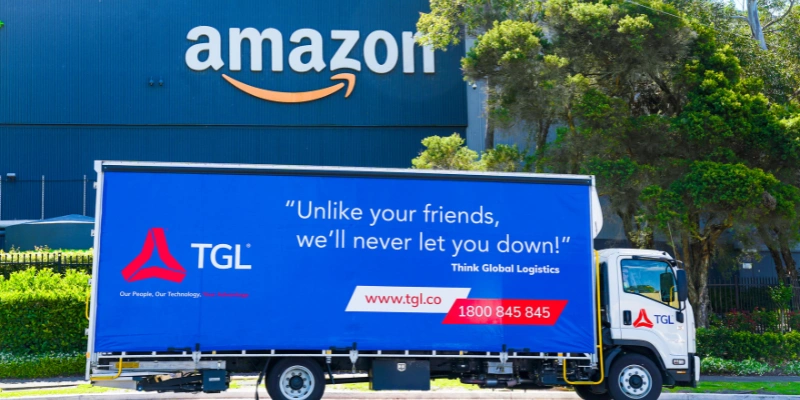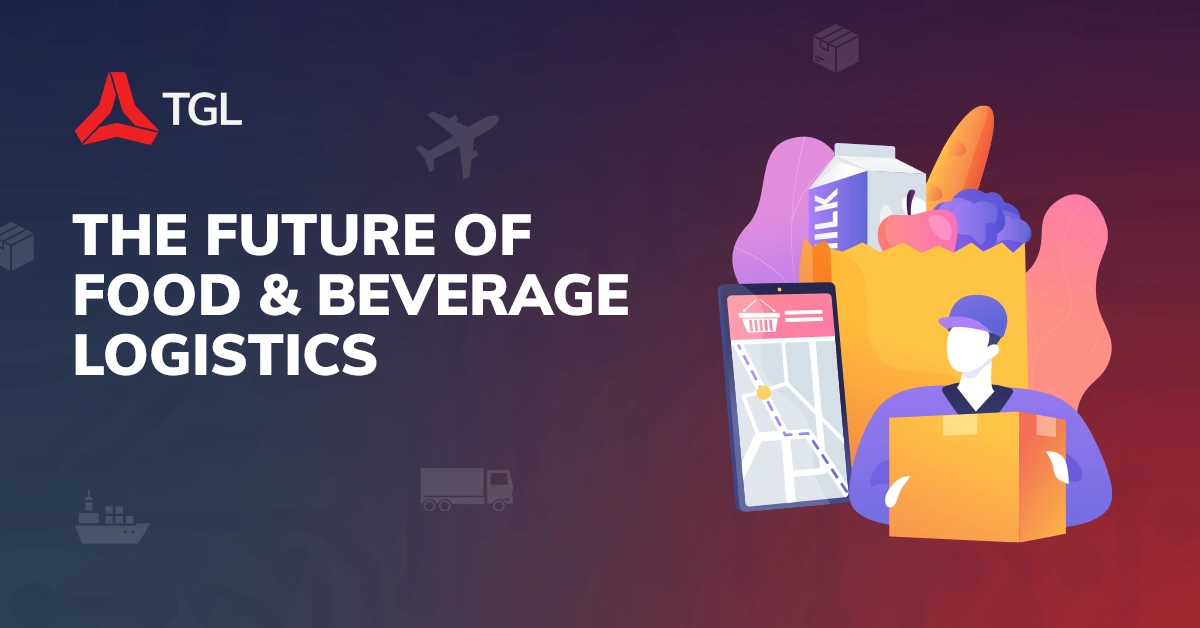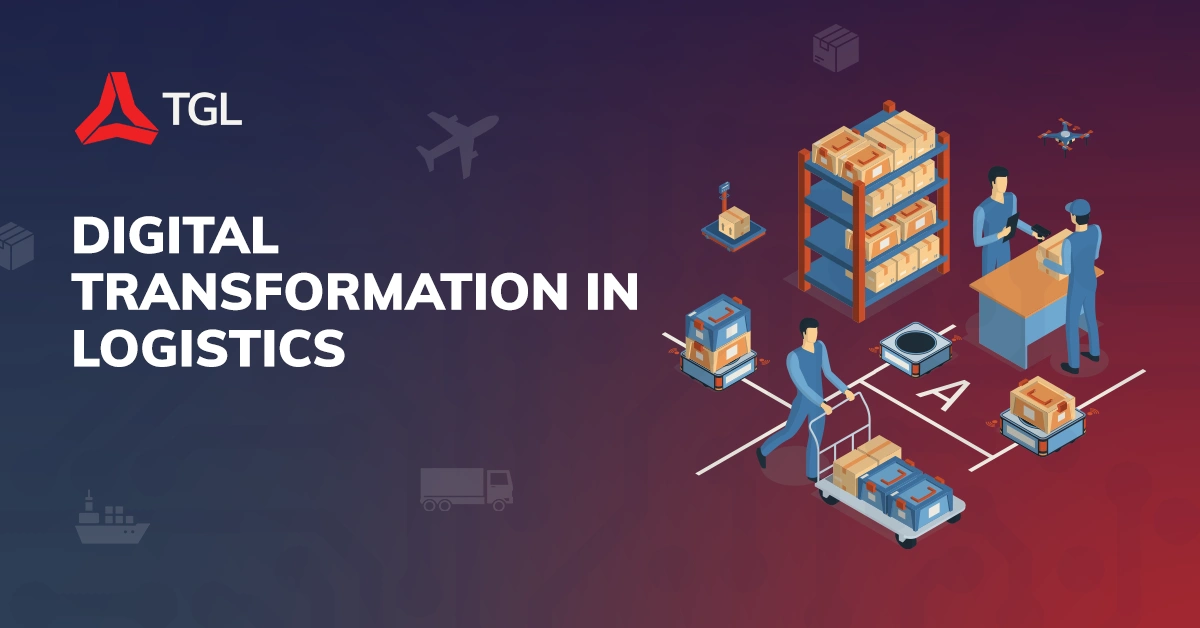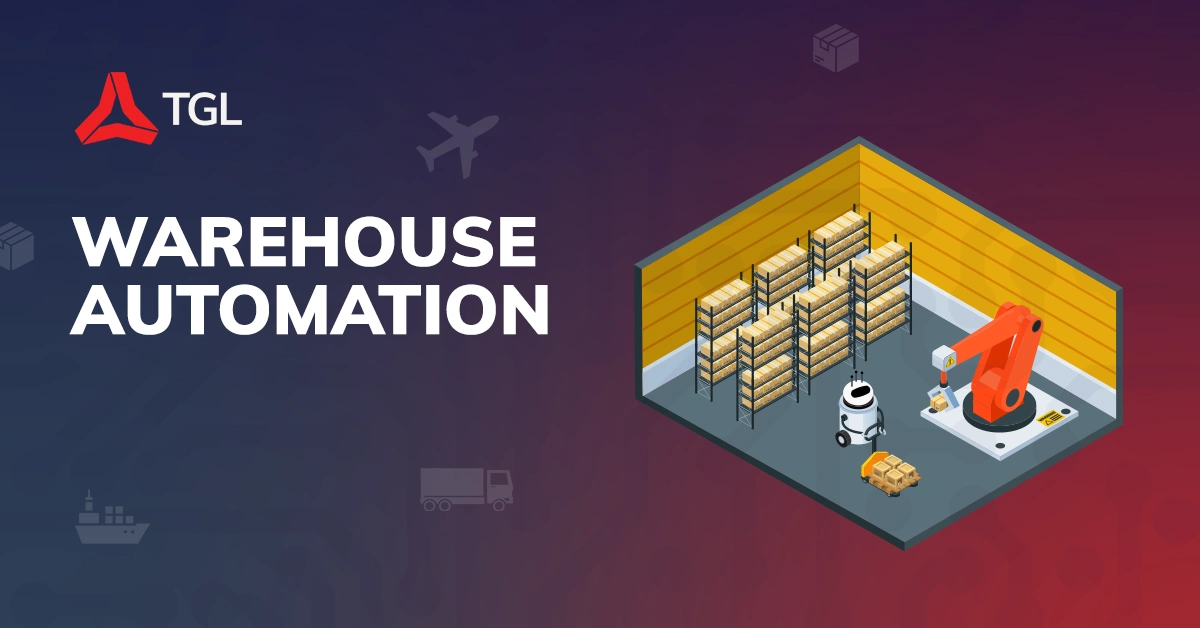The Rise of Logistics in Ecommerce

E-commerce has become a phenomenon in the business world; with the help of logistics, the industry has become much more efficient and successful. Whether a business is just starting or trying to grow, there are many factors to consider.
Factors such as marketing, product innovation, social media and customer service are just the tip of the iceberg; if you want your business to succeed, there are many other important aspects you need to consider. Managing all this on your own can be overwhelming, and you may find yourself overlooking one of the most important tasks, the logistics of your e-commerce business.
The industry is saturated with many alternatives, so it's essential that you have the best possible logistic solutions in place; if a company fails to get their product to where it's needed, customers will find someone else who can. These days, Consumers expect excellent service and fast deliveries, so sellers must have a dependable supply chain. Having a trustworthy global warehousing and logistics agent is very advantageous.
What is e-commerce logistics?
E-commerce logistics is the process of planning, organising, and managing the storage, transportation, and delivery of goods and online purchases. It involves the movement of goods from the manufacturer or supplier to the customer, and includes tasks such as warehousing, order fulfilment, and last mile delivery.
E-commerce logistics plays a crucial role in the success of online businesses, as it enables them to efficiently deliver products to customers and maintain high levels of satisfaction. Now that we understand the importance of e-commerce in today's society, it's important to understand the role of logistics and how it helps e-commerce businesses.
Logistics is vital for online stores due to the fact that efficient freight service and a good delivery time can impact buyer behaviour. You can invest in a good website, SEO, marketing, and many other essential tools, but ultimately if a customer doesn't receive their goods, all your efforts may not be enough. As aforementioned, logistics for e-commerce is necessary for the success of an online store, there are many advantages to investing in a proficient supply chain, including:
- Higher online sales conversion.
- Better shopping experience.
- Retention.
- Consumer loyalty.
- Promoting clients.
- Good reputation for the brand.
In-House Or Third-Party Logistics Providers
Whether an e-commerce company uses a third-party logistics provider or has developed its own internal system, a robust e-commerce logistic system is key to growing a successful business. 3PL warehouse providers can be an optimal solution for smaller retailers which may need more resources to manage national or global e-commerce logistics.
Most small businesses choose to outsource to fulfilment centres that can manage inbound shipments of products, stock, track inventory and handle all aspects of fulfilment. By using 3PL services to manage e-commerce logistics, businesses of any size can achieve a global reach. Retailers may be hesitant to outsource since using 3PL may be more expensive than handling logistics internally or losing control of the shipment.
However, there are many advantages to outsourcing that may overshadow the doubts businesses may have. 3PLs have an abundance of capabilities and resources that individual sellers do not have, such as technology, labour, global presence, and expertise.
What is involved
E-commerce logistics is highly complex and can be challenging to manage, and it is vital to understand what is involved. Logistics management is crucial to the success of any organisation; the process entails a wide variety of elements that are crucial for the success of your business. If you want your logistics supply chain to run smoothly, you must understand all fundamental components of the logistics process. Here are the most vital aspects you need to consider in order to have a smooth and visible supply chain.
Planning
Planning is the most critical part of any good logistical process; customer demand is constantly changing, so even if the supply of products is steady, you may need to change your manufacturing process and inventory in order to meet customer demand. Planning e-commerce logistics will help you determine the most efficient and cost-effective way to get products from the supplier to the customer. Some key factors to consider when planning e-commerce logistics:
- Fulfilment centre location: Online stores need to choose a fulfilment centre location that is close to their target market in order to reduce shipping times and costs.
- Transportation methods: E-commerce businesses need to decide on the best transportation methods for their products, taking into account factors such as cost, speed, and environmental impact.
- Returns and refunds: Online stores need to have a system in place for handling returns and refunds, including the logistics of returning products to the warehouse or supplier.
Overall, effective online retail logistics planning involves making informed decisions about every step of the process, from inventory management to delivery options, in order to deliver products efficiently and cost-effectively to customers.
Inventory Management
Inventory management helps businesses plan and strategise for future product stock take based on data analytics and statistical tools. The process will give your business a good idea about market opportunities, potential trends, customer behaviour and much more. Inventory management is an essential tool to make sure the supply chain runs smoothly; this can be simplified by systems that monitor customer behaviour.
Order Fulfilment
Order fulfilment involves picking and packaging a customer's order for delivery; once a customer places an order, your order management system will send all the details from the purchase to your fulfilment centre. Ensuring these systems are adequately integrated is vital for efficiency; it guarantees that customers receive their products on time. Smaller businesses may not use large fulfilment centres and complex systems, but larger companies like Amazon have intricate networks and fulfilment centres in key geographic areas.
Another critical tool used in order fulfilment is a dispersed hub; these are more relevant for larger e-commerce businesses that have their products in many locations across a country. These hubs allow you to split your inventory in various locations and enable faster delivery of orders. E-commerce businesses need to have a system in place to efficiently fulfil orders and get them out the door as quickly as possible.
Technology
Technology has come a long way in improving e-commerce and logistics; advancements in automation, connective networks, smart analytics, ERP and blockchain systems have had huge impacts on the industry. Automation is a crucial tool that helps streamline your online store, and these systems automate repetitive tasks. Although automation systems can be expensive, it increases the efficiency of your e-commerce store.
Another tool used for online businesses is big data analytics, which can help identify demand patterns and trends. Big data also plays a vital role in optimising the overall supply chain by collecting and analysing data from a wide variety of sources. Big data software also provides better flexibility and scalability as It helps online businesses gain insights into their customers' shopping behaviours to personalise the customer experience.
When managing multiple warehouses across various countries or religions, systems sync and integrate your network are critical. Inventory tracking mechanisms in warehouses must be connected to an online store so inventory levels are constantly updated before a customer checks out. As a business grows, owners need to optimise e-commerce logistics and continue to grow; companies need to invest in synchronisation and connection between their various platforms.
Blockchain is a way of storing information that is very difficult to tamper with. While blockchain is more commonly known for being used for cryptocurrency, the technology enables it to be used in e-commerce.
These systems are especially useful in supply chain management as it allows information to be passed through more securely and visibly. The underlying technology of the blockchain enables a customer to securely track any online transaction they make from beginning to end. It's a fast, reliable system that companies like Amazon have already implemented.
Last mile delivery
One of the most essential components of e-commerce is last-mile delivery; the final stage in the logistics process is when the goods are transferred from the warehouse to the customer's door.
The most challenging part of last-mile delivery is transporting goods in the most efficient manner; for example, transporting them to rural areas or urban areas affected by traffic and congestion. Retailers must have the capacity to meet today's standards of quick and efficient shipping. It provides a pivotal opportunity to make a good impression and build a reputable brand.
Future of ecommerce logistics
The future of e-commerce logistics is likely to involve the use of advanced technologies and sustainable practices to meet the increasing demand for fast and efficient delivery of products to customers. As consumers continue to expect faster and more efficient delivery times and methods, e-commerce business continues optimise their delivery channels and logistics networks. The growth of cross-border e-commerce is also another key trend which is set to shape the future of ecommerce.
Growth of same-day and next-day delivery
Consumers are increasingly expecting faster delivery times, and e-commerce businesses are responding by offering same-day and next-day delivery options. With the rise of e-commerce, there is increased competition among businesses to offer the fastest delivery times. To offer same-day and next-day delivery, e-commerce businesses need to have a well-organised and efficient logistics system in place. This includes having fulfilment centres located close to major population centres, using advanced transportation methods, and having a network of delivery partners to handle the last mile.
Increased use of sustainable transportation
E-commerce businesses are under pressure to reduce their carbon footprint, and this is likely to lead to an increase in the use of sustainable transportation options such as electric vehicles. The increased use of sustainable transportation is a trend that is likely to continue as e-commerce businesses look for ways to reduce their environmental impact and meet the increasing demand for sustainable products from consumers.
Growth of cross-border e-commerce
FFAs e-commerce continues to grow globally, there will be a greater need for effective cross-border logistics to get products to customers in different countries. This will require the development of more efficient customs processes and the use of international transportation networks. To succeed in cross-border e-commerce, businesses need to have a clear understanding of the customs and regulations of the destination country. They also need to have efficient logistics systems in place to handle the transportation and delivery of products internationally.
TGL's eCommerce solutions
Finding the right international freight forwarder for your e-commerce company can be difficult; with TGL, you can always rely on our specialised freight services to provide tailored logistic solutions for your online business. As your company expands, it's essential to have logistical processes you can depend on; today's customer expectations of online shopping are extremely high, and you must be able to deliver.
Most growing e-commerce businesses may need more resources and capabilities to meet customer demand, but with TGL, you can be sure your customers' expectations will be exceeded with our unmatched services. One of TGLs biggest e-warehouse clients is Amazon, and we provide optimal delivery services around Australia with our very own trucking fleet.
It is vital to have the best logistics solutions in place, as there are many competitors in the industry. If a company cannot deliver their product, customers will go elsewhere.
Consumers expect excellent service and fast delivery, so sellers must have a reliable supply chain. Hiring a reliable logistic agent is very helpful.


